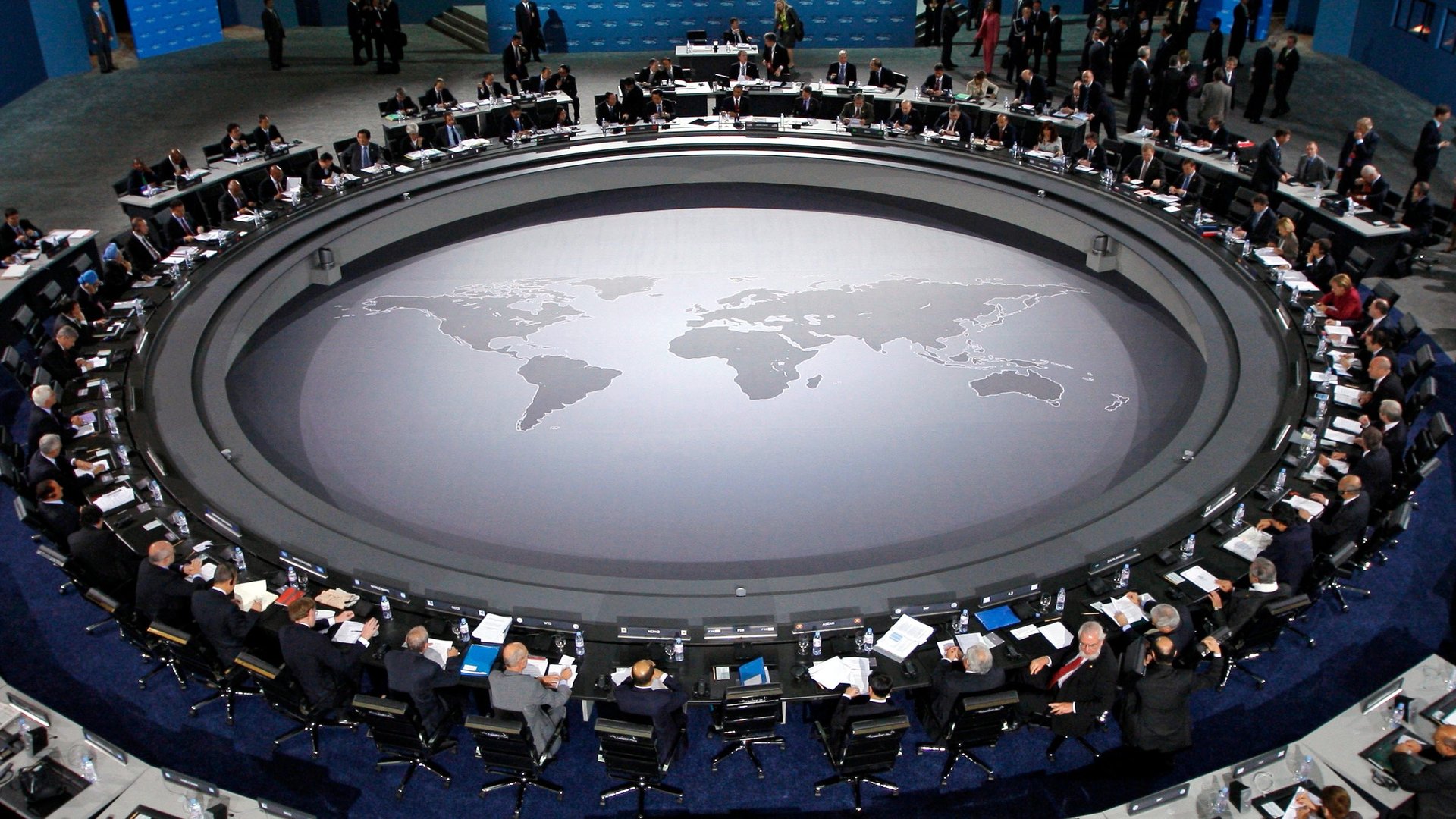Welcome to the new normal: Nothing will happen at the G-20
The G-20 leaders’ summit beginning today is arguably the first ever that will feature almost no tangible economic news, which is a good sign: The crises that have defined these meetings are slipping into the past. But inaction is a warning in itself—complacency may lay the groundwork for the next big financial implosion.


The G-20 leaders’ summit beginning today is arguably the first ever that will feature almost no tangible economic news, which is a good sign: The crises that have defined these meetings are slipping into the past. But inaction is a warning in itself—complacency may lay the groundwork for the next big financial implosion.
The organization only dates back to 1999, after the Asian financial crisis forced world leaders accept that the G-7 (a club including the US, UK, France, Germany, Italy, Canada and Japan) was no longer economically preeminent enough to coordinate global policy, and would need to include the 20 largest markets, but particularly emerging giants like China, India and Brazil. The heads of these member governments didn’t gather together until November 2008, which you may remember was a frenzied time indeed. A summit in Washington, DC made clear that this group was now the venue to coordinate a response to the crisis.
The meetings that followed made good on that coordination: In 2009, leaders gathered twice, in London and Pittsburgh, to refinance the International Monetary Fund and set out a strategy of massive fiscal and monetary stimulus that helped prevent Great Depression 2.0. At 2010 showdowns in Toronto and Seoul, they debated the right time to begin pulling back that stimulus and how to reform the financial system, pitched free trade deals and mediated the US-China currency dispute. The Euro crisis reared its head at a Nov. 2011 meet-up in Cannes, creating a deadline for European leaders to come up with a stop-gap plan to reduce Greek debt and other plans to save the euro.
But last year’s shindig in Los Cabos, Mexico, while it resulted in at least a superficial European consensus to support the single currency and the first ever emerging market-led IMF recapitalization, was seen as something of a let-down when it came to policy coordination. And this year’s meet-up in St. Petersburg, Russia, is expected to offer even less in the way of tangible action, but far more acrimony: The simmering tension between Russia and the US over Syria is likely to be the main story-line, while Brazil and Mexico remain upset by former US government contractor Edward Snowden’s revelations of US electronic surveillance.
It’s too bad, in a way, since the G-20 is important at least for the behind the scenes grunt work on-going between the ministers and their deputies. An important agreement earlier this year validated monetary stimulus plans in Japan and the US. But like most fractious political bodies, it takes a crisis to make consensus; otherwise, the parties are happy to play a waiting game. In a way, that’s a good sign: The world’s economies are, by and large, gradually strengthening.
But with emerging market currency trouble starting to rear its head, the G-20 may have cause to recall the Asian crises that led to its inception and wish that more had come from this year’s assembly.